Today’s batch of reviews contains a mix of fiction and nonfiction, with my opinions as varied as the titles themselves. Enjoy the reviews!
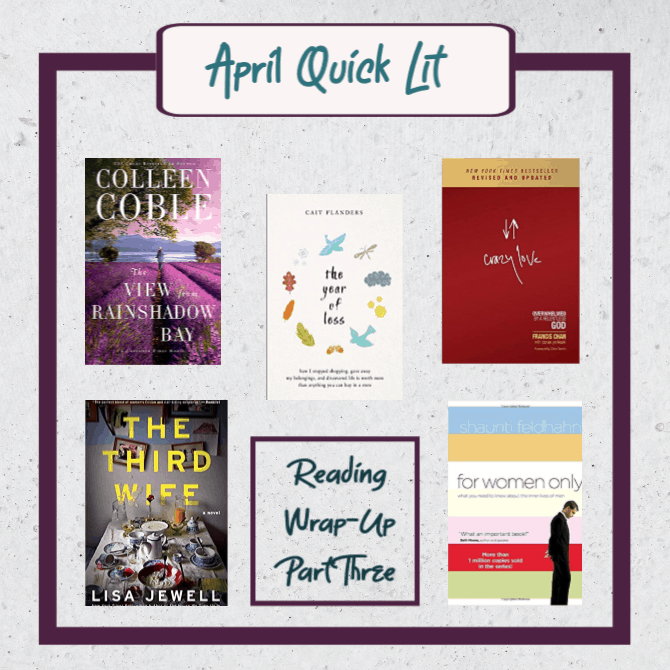
Crazy Love: Overwhelmed by a Relentless God, by Francis Chan: Francis Chan’s Letters to the Church singlehandedly transformed my thoughts about the body of Christ and our current church model. In sharing my insights from that book with friends, several insisted I read Chan’s most famous book, Crazy Love, and assured me that it would have a lasting impact on my walk with Christ. They were not wrong.
Chan’s book begins with a reflection on the magnificence of God and a call to complete and total worship of Him. Chan elaborates on the incredible love God has for us, His children, then emphasizes that God’s radical, crazy love for us should elicit an equally radical response of love, devotion, and obedience. Chan calls believers out of lukewarm Christianity and into a faith that is wholly and completely committed to serving our Lord and Savior. He emphasizes that faith without works is no faith at all, and that following Jesus isn’t something we can or should do halfheartedly. It must be central to everything we do and are. Chan shows how this is the path to a true, authentic relationship with Jesus and that it is the only Biblical option for those seeking a relationship with Christ.
This is not a comfortable book, and it isn’t meant to be. Too many American Christians (myself included) fall into the habit of being Sunday Christians who claim to love God, but whose lives look no different from those of non-believers. Chan compassionately but aggressively disabuses his readers of the misconception that that brand of Christianity is acceptable. Chan outlines what it means to be an OBSESSED Christian, and even gives examples of historical and modern-day figures who have lived the “Obsessed Christian” life.
Chan’s words will likely ruffle quite a few feathers, and I believe that is his intention. I admire his willingness to call out believers for our tepid faith. Crazy Love stirred in me a renewed passion for the Lord and a desire to be 100% sold out for Him.
My Rating: 4.5 Stars.
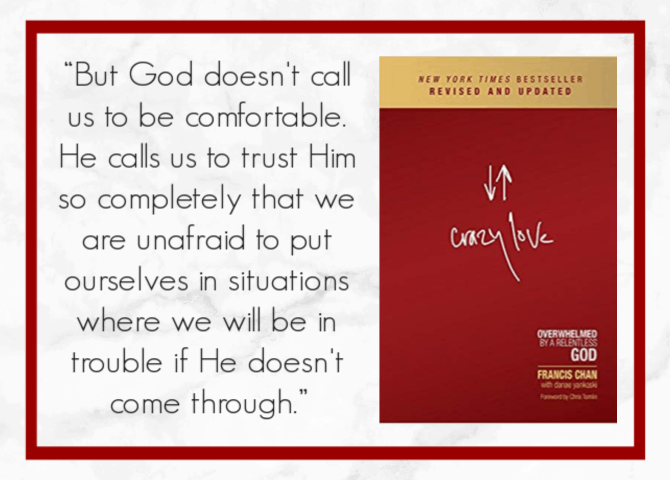
The View from Rainshadow Bay, by Collen Coble: One year after Shauna loses her husband, Jack, in a climbing incident, her business partner, Clarence, is murdered. Clarence’s final words to Shauna leave her with reason to believe that she and her five-year-old son, Alex, are in danger as well. Though Shauna holds Jack’s best friend, Zach, responsible for Jack’s death, she now sees him as her only hope for protecting herself and her son. Together, the two embark on a mission to find Clarence’s murderer and resolve mysteries from Shauna’s own childhood—two seemingly unrelated events that now appear to be connected.
Like all of Colleen Coble’s books, this is a fun, comforting read with a gentle (albeit predictable) mystery, some light romance, and heavy themes of redemption and faith. While I found the mystery elements a little too far-fetched, the story was a nice change of pace from some of the heavier fiction I’ve read lately. The setting on Washington State’s Olympic peninsula is lovely (how about that cover?!), and the characters are multidimensional and easy to like. Although I admit to feeling slightly confused and frustrated by the depiction of Shauna as a “damsel in distress” given her Navy background, I still found her to be a compelling character and was drawn to the exploration of her grief and guilt in the aftermath of her husband’s death.
This book is not at all literary, but it was an engaging read and I’m eager to read more from this series.
My Rating: 3.5 Stars.
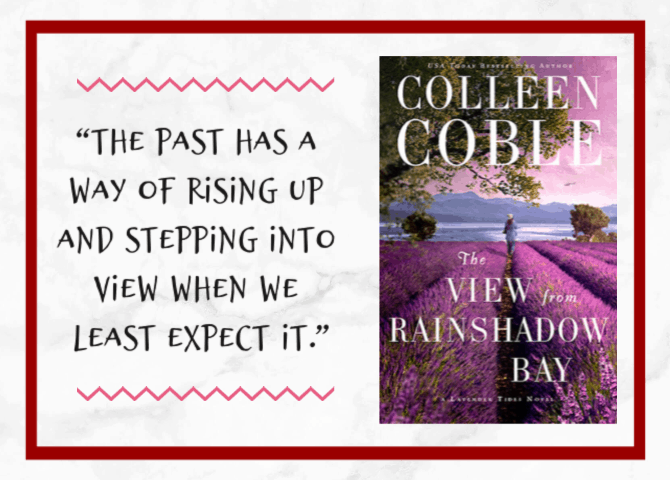
For Women Only: What You Need to Know About the Inner Lives of Men, by Shuanti Feldhahn: Though culture seems determined to convince us that men and women are exactly the same, if you’ve ever spent time with small children of both genders, you know this isn’t the case. Men and women are different from the moment we exit the womb, and these intrinsic differences can be the source of enormous amounts of confusion, frustration, and miscommunication. In For Women Only, Christian author Shaunti Feldhahn gives women a window into the inner lives of our men.
Relying on extensive research and her own experiences, Feldhahn helps women understand eight truths about our men: men need respect, men are insecure, men are providers, men want more sex, men are visual, men process by first pulling away, men enjoy romance, and men care about their wives’ appearance. Feldhahn dispels some of the myths around these truths and goes into the science behind why/how men’s brains are wired to act and feel the way they do.
While much of the information in this book was familiar to me, it was helpful to have these truths presented in one short, easy to read book. I enjoyed Feldhahn’s narration and appreciated her perspective as a woman doing her best to better understand her own husband. Much of what she presents gave me a better understanding of Luke and highlighted some false assumptions I’d made about him and our relationship. The sections on how men process information and a man’s need to provide for the family and feel appreciated were especially helpful.
I have no doubt many readers will struggle with some of the ideas presented here, especially regarding topics such as the importance of modesty and the presentation of traditional gender roles. I did not have a problem with these ideas, though I do question whether they are quite as universal as Feldhahn makes them seem, and wonder how things such as cultural norms and personality types play into these issues.
My one big hangup was with the book’s final chapter, in which Feldhahn emphasizes how important it is for women to “watch our weight.” Though couched in politically correct language such as “taking care of ourselves,” and “being mindful of our health,” she is very obviously telling women that in order to have fulfilling marriages, we must maintain slim waistlines; she even goes so far as to recommend specific diets. While I don’t doubt that men care about how their wives look, and I acknowledge this is a sore issue for me given my history with disordered eating, this chapter felt somewhat patronizing and much less relevant/actionable/important than the others. Coming at the end, it left me feeling less than thrilled with the book as a whole.
My Rating: 3.5 Stars.
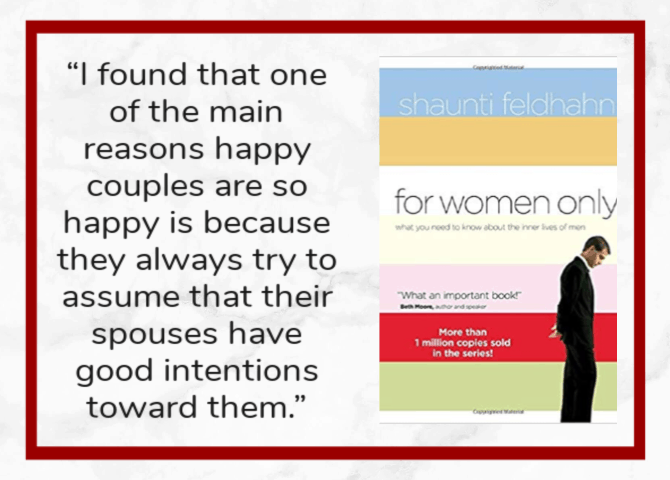
The Year of Less: How I Stopped Shopping, Gave Away My Belongings, and Discovered Life is Worth More Than Anything You Can Buy in a Store, by Cait Flanders: Cait Flanders was no stranger to making drastic life changes. Though still in her twenties, Cait had worked her way out of alcoholism, a drug habit, and nearly $30,000 of consumer debt—all changes she documented on her personal blog. So it was no surprise to Cait’s friends, family, or blog readers when she embarked on a year of no spending. The reasons behind her decision were clear: she realized that, despite overcoming many other addictions, she still had an unhealthy spending habit. Unfortunately, the things she was buying were making her less happy, not more. She had too many possessions in her home, and was bringing in more by the day. So Cait decided to declutter her apartment, getting rid of 70% of her belongings, and committed to buying nothing but consumables for an entire year.
In The Year of Less, Cait documents the highs and lows of her year without spending. She includes details of her purchases (or rather, non-purchases) but also goes behind the scenes of her experiment to share the life challenges and changes from her year—from painful breakups, to family tragedy, and more. She shares how these life events affected her experiment, and in turn how her experiment equipped her to face the pain in her personal life. With her coping mechanisms stripped away, she was forced to face some uncomfortable truths about herself and gain a better understanding of her values and beliefs. Through this challenging year, Cait became a more mindful consumer and a more fulfilled human being.
The premise of this book is fantastic, and quite relevant. In 2019, more and more of us are becoming aware of how much excess is in our lives—from physical possessions to an inundation of screens and activities and noise. A strict shopping ban may not be necessary for all of us (and could be detrimental to some for whom it may trigger urges to shop even more), but for someone with an addictive, all-or-nothing personality such as Cait (and myself!), it makes a lot of sense. I was inspired by Cait’s ability to recognize her problem and get a handle on it.
Unfortunately, the premise and title of the book are a bit misleading. While I was hoping for more of a practical guide, this is strictly memoir with very few actionable ideas or tips. I found the book’s angsty tone and repetitive stories tedious, and was disappointed to find that the potentially powerful messages of intentionality, mindfulness, and anti-consumerism were lost in the author’s navel-gazing. I wanted to like Cait, but had difficulty relating to this self-indulgent 20-something with little life experience or wisdom to offer her readers.
My Rating: 3 Stars.
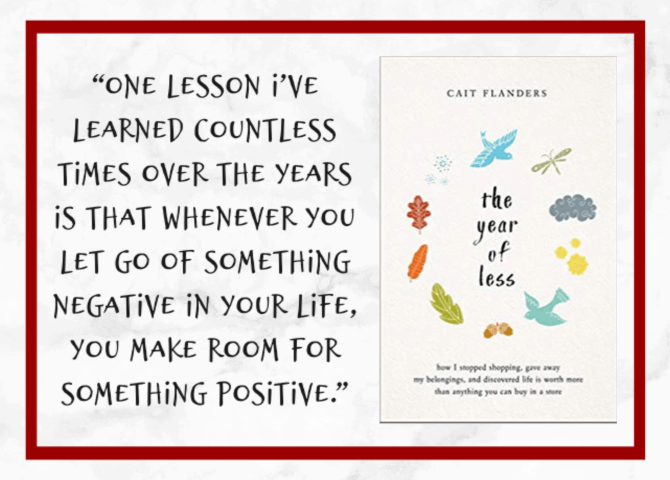
The Third Wife, by Lisa Jewell: Adrian Wolfe’s family appears to be happy, if rather unconventional. Sure, he has five children by two different women and has now moved on to wife number three. But he’s remained close with his children and stayed friends with his exes, who seem to understand his perpetual need to discover new love. The families even vacation together. All is right in Adrian’s world. Then, in the early hours of a summer morning, his young third wife, Maya, steps into the path of an oncoming bus and is instantly killed.
Adrian is overcome with grief and is forced to take a second look at his life choices. Secrets from his relationship with Maya start to emerge, and he begins to see that his children haven’t adjusted to their father’s serial marriages as well as he’d assumed. Meanwhile, a mysterious young woman appears in Adrian’s life, then disappears. Certain that this woman knows more about Maya than she’s letting on, Adrian grows determined to find her and discover what really happened to his third wife.
This novel contains a dark mystery element that drives the plot and maintains a suspenseful tone, but The Third Wife isn’t a thriller. Rather, it is a complex examination of a hurting family. Lisa Jewell is a master of creating complicated characters who are suffering the consequences of their past decisions and in search of a second chance. While I struggled to like the characters in The Third Wife, I appreciated the points the author is attempting to make about selfishness, sacrifice, and the poisonous outcomes of buried emotions. And I loved the ending—not neat and tidy, but hopeful and redemptive.
My Rating: 4 Stars.
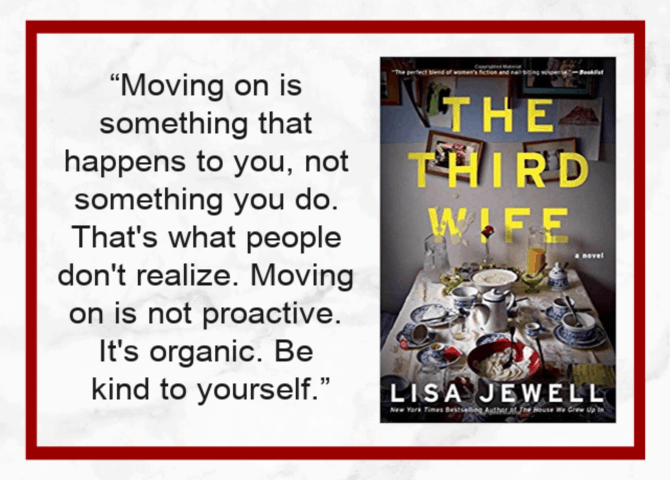
What have you been reading lately? Any titles to recommend? I’d love to hear them!